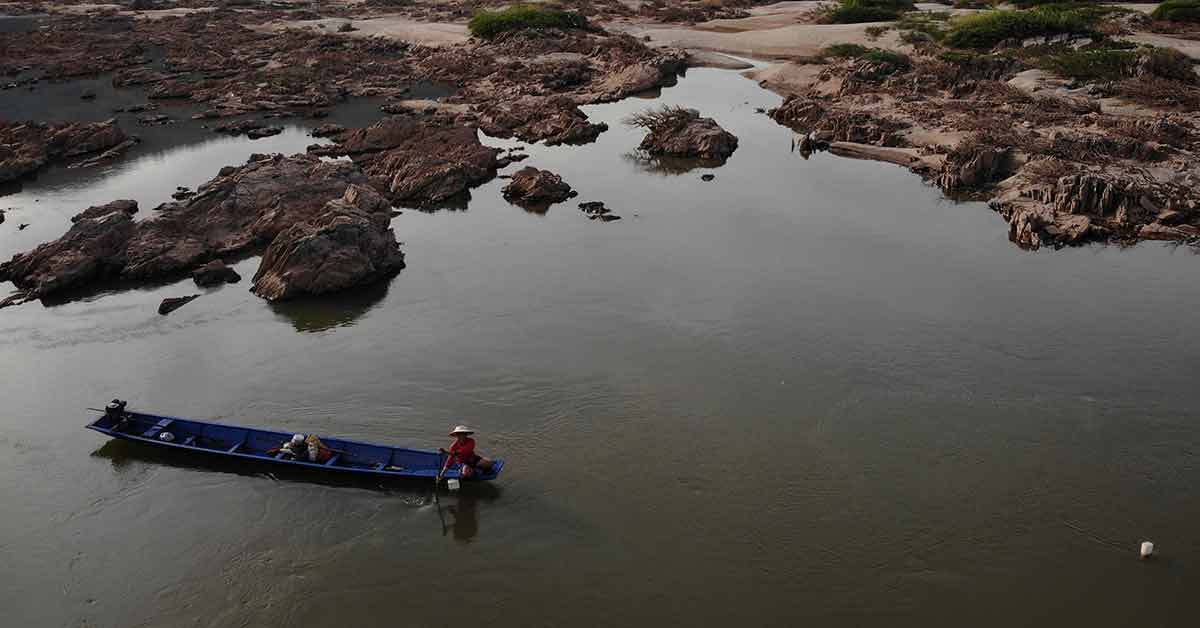China was pressed Tuesday to show more transparency over its dam operations on the Mekong River, months after downstream water levels hit record lows and threatened millions of livelihoods.
Lao, Thailand, Cambodia and Vietnam all battled severe drought last year as the tide of the river fell to record lows - exposing rocks, killing fish and threatening millions of livelihoods.
But the dams along the waterway in China - where the river is known as the Lancang - held "above-average natural flow" at the same time, according to satellite imagery published by US monitor Eyes on Earth in April.
The extreme low flows showed the need for China to publish timely data from its dams so its neighbours can forecast bad conditions, the intergovernmental Mekong River Commission (MRC) said in a Tuesday statement.
It called for "all year-round data for effective monitoring and reporting on flood and drought," in rare comments directed at the regional superpower.
The Mekong is Southeast Asia's longest river and acts as a lifeline to 60 million people.
The MRC acts as a dam consultation body for Mekong nations, but has been accused of being toothless in stopping river projects sponsored by governments and big business.
China has built 11 dams on its section of the river while downstream countries, including underdeveloped Lao, have dozens of hydropower dams built or in planning - many funded by Chinese-backed companies.
Pianporn Deetes of International Rivers said "sincere political will" was needed to mitigate existing environmental damage between the Mekong nations.
"This includes changing the ways the dams are operated."
The dam-building spree in China, as well as in Lao, has incited worry from the US, which vies with Beijing for geopolitical influence in Southeast Asia.
US Secretary of State Pompeo last year warned that China's dam-building spree "concentrates control" over the Mekong's downstream flow.
Beijing has long denied responsibility for the low water flows, and its foreign minister Wang Yi last year said that China had released more water on the request of Thailand, which was experiencing a drought. - AFP
